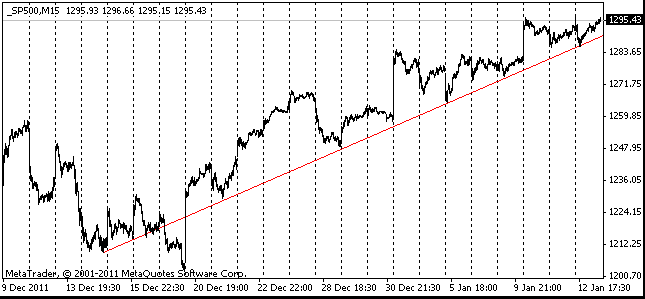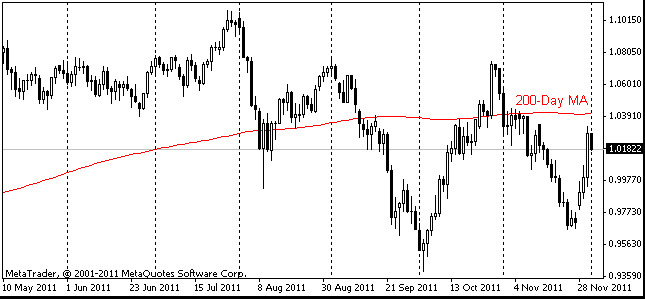EUR/usd
Standard and Poor's downgraded the credit ratings of France and eight other euro-zone countries on Friday night. France and Austria got stripped of their top credit ratings. After all, it's quite natural after the agency deprived the USA of its top rating last August. The ratings of Italy, Spain, Portugal and Cyprus were right away lowered by two notches. The spokesman of the agency said that European politicians had failed to act adequately to handle the systemic crisis. Now investors are facing the EFSF issue as its prospects are dubious. Now Germany will have to increase its contribution to the fund in order to preserve the former opportunities of the troubled countries funding. This idea meets with considerable resistance on the part of German legislators. It is still not very clear what it will lead to. The European markets were closed at the time of the S&P presentation, but the forex market has already shown its reaction. Markets usually become very active at the first downgrade; the following reactions are generally much weaker. The single currency didn't manage to launch an attack on Friday, having fallen from the 1.2877 peak to 1.2624. Now it is trading near the 1.2640 area. Thus, the S&P statement hasn't allowed for a technical correction, bringing the eurusd again to the lower part of the downtrend channel, below the previous low. The market seems to be weak to continue the euro sales, but at the same time it's no sense buying on such traffic of bad news.

GBP/USD
The situation on the British price front seems to be developing in favour of the Bank of England. The data on producer prices published on Friday morning turned out to be weaker than expected. Input PPI showed the slowdown in the annual growth from 13.6% to just 8.7%. Output PPI also went down significantly, from 5.4% in November to 4.8% in December. That reduction became possible mainly due to the energy prices, at the same time the discounts of manufacturers fighting for the market share can't be ignored either. The British pound paired with the euro got a blow on the S&P decision. But basically it was not the pound's game as followed from the EURGBP drop, which interrupted the nearly shown correction. If the situation in Europe becomes more complicated, it may finally lead to a greater IMF financing, which will come at a high cost for the UK under the circumstances of unprecedented austerity. As for the already released data, it's of interest that Rightmove's HPI has been decreasing for three consecutive months. The index fell by 0.8% in January after the 3.1% decrease in November and the 2.7% one in December. Tomorrow markets will see the data on the UK consumer prices, but today is a relatively quiet day as far as statistics are concerned.

The S&P downgrade of euro-area credit ratings caused a decline in stock indices on the opening of Friday's trading. The index fell below the support line we've mentioned recently. Later investors were not strong enough to buy stocks again within the trend. This has already happened before. It would be more important if the negative flow continued and today closed below this support line too. In this case stocks are very likely to continue going down.

AUD/USD
The Australian dollar managed to survive Friday with dignity running away from risks, however the country's own weak data inflicted an unexpected blow on aussie on Monday morning. The statistics on the adverts marked the labour market deterioration. The index lost 0.9% in December and has been down for the last 5 months out of six. On such statistics Aussie slid down to 1.0250, but a certain correction of futures against U.S. indices allowed for the return of a significant portion of the losses incurred on the publication of that piece of news. The fate of the Australian currency will largely depend on the demand for risk this week. Of internal statistics the official data on the labour market expected on Thursday will be of interest. The country's labour market has been showing rather poor results lately. This is mainly connected with the slowdown in China.
